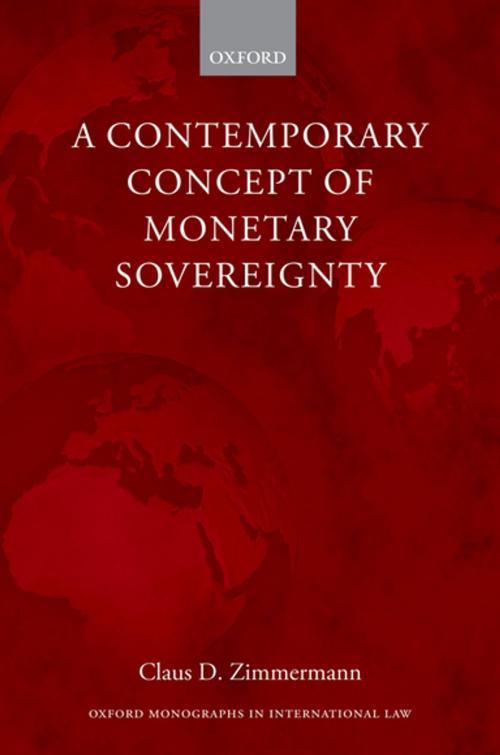A Contemporary Concept of Monetary Sovereignty
Nonfiction, Reference & Language, Law, International, Business & Finance| Author: | Claus D. Zimmermann | ISBN: | 9780191502064 |
| Publisher: | OUP Oxford | Publication: | November 7, 2013 |
| Imprint: | OUP Oxford | Language: | English |
| Author: | Claus D. Zimmermann |
| ISBN: | 9780191502064 |
| Publisher: | OUP Oxford |
| Publication: | November 7, 2013 |
| Imprint: | OUP Oxford |
| Language: | English |
Monetary sovereignty is a crucial legal concept dictating that states have sovereignty over their own monetary, financial, and fiscal affairs. However, it does not feature as part of any key instruments of international law, including the Articles of Agreement of the International Monetary Fund. Rather, it has remained a somewhat separate notion, developed under contemporary international law from an assertion of the former Permanent Court of International Justice in 1929. As a consequence of globalization and increasing financial integration and a worldwide trend towards the creation of economic and monetary unions, the principle of monetary sovereignty has undergone significant change. This book examines this evolution in detail, and provides a conceptual framework to demonstrate what this means for the legal and economic challenges faced by the international community. The book examines the historic origins and evolution of the concept of monetary sovereignty, putting it into the context of broader concepts of sovereignty. It argues that monetary sovereignty remains relevant as a dynamic legal concept with both positive and normative components. It investigates the continuing hybridization of international monetary law resulting from changes to its formal and material sources. It then examines the complex phenomenon of exchange rate misalignment under international monetary and trade law, and the increasing regionalization of monetary sovereignty, notably in light of the European sovereign debt crisis. Finally, it assesses the role the concept of monetary sovereignty can play in the reorganization of international finance following the recent global financial crisis.
Monetary sovereignty is a crucial legal concept dictating that states have sovereignty over their own monetary, financial, and fiscal affairs. However, it does not feature as part of any key instruments of international law, including the Articles of Agreement of the International Monetary Fund. Rather, it has remained a somewhat separate notion, developed under contemporary international law from an assertion of the former Permanent Court of International Justice in 1929. As a consequence of globalization and increasing financial integration and a worldwide trend towards the creation of economic and monetary unions, the principle of monetary sovereignty has undergone significant change. This book examines this evolution in detail, and provides a conceptual framework to demonstrate what this means for the legal and economic challenges faced by the international community. The book examines the historic origins and evolution of the concept of monetary sovereignty, putting it into the context of broader concepts of sovereignty. It argues that monetary sovereignty remains relevant as a dynamic legal concept with both positive and normative components. It investigates the continuing hybridization of international monetary law resulting from changes to its formal and material sources. It then examines the complex phenomenon of exchange rate misalignment under international monetary and trade law, and the increasing regionalization of monetary sovereignty, notably in light of the European sovereign debt crisis. Finally, it assesses the role the concept of monetary sovereignty can play in the reorganization of international finance following the recent global financial crisis.















